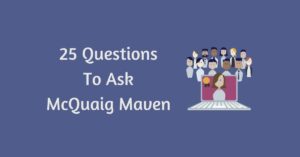Job fit is the compatibility between an individual and a specific job and/or work environment. It involves assessing how well a person's skills, abilities, interests, values, and personality traits align with the requirements and characteristics of a particular job or role.

When there is a good job fit, the individual’s qualifications and characteristics closely match the job’s demands, leading to higher job satisfaction, engagement, and performance. On the other hand, a poor job fit can result in dissatisfaction, stress, and underperformance.
The key aspects of job fit
Skills and Qualifications
Assess whether an individual possesses the necessary knowledge, education, training, and experience to perform the job successfully.
Interests and Values
Examine whether the individual finds the nature of the work, the industry, and the organisational culture align with their personal interests and values.
Personality and Work Style
Examine whether the individual finds the nature of the work, the industry, and the organisational culture align with their personal interests and values.
Is job role benchmarking part of your recruitment process?
Team Fit
Consider how well the individual’s skills, communication style, and interpersonal abilities align with the dynamics and culture of the team they will be working with.
Finding a good job fit is beneficial for both the individual and the organisation. It increases the likelihood of job satisfaction, productivity, and retention for the employee while enhancing organisational effectiveness and reducing employee turnover for the employer.
Is job role benchmarking part of your recruitment process?
Strong job fit improves employee retention
Job Satisfaction
When an employee’s skills, abilities, and interests align well with their job responsibilities, they are more likely to feel satisfied and fulfilled in their role. This satisfaction reduces the likelihood of employees seeking other job opportunities, thus improving retention.
Engagement and Motivation
Employees who are in jobs that match their skills and interests are more likely to be engaged and motivated. They tend to feel a sense of purpose and enjoy their work, leading to higher productivity and a lower desire to leave the organisation.
Reduced Turnover Costs
By hiring employees who are a good fit for the job, organisations can reduce turnover rates, saving time and resources associated with replacing employees.
Workplace Culture Alignment
Job fit also encompasses cultural alignment between employees and the organisation. When employees share similar values, beliefs, and work styles with their organisation, they are more likely to feel a sense of belonging and loyalty. This alignment strengthens their commitment to the organisation, increasing the chances of staying for the long term.
Career Development
A good job fit can facilitate career development opportunities for employees. When employees are matched with roles that align with their skills and interests, they are more likely to experience professional growth and advancement within the organisation. This provides a sense of progression and development, making employees more inclined to stay.
Reduced Stress and Burnout
When employees are in jobs that match their capabilities, they are less likely to experience excessive stress or burnout. Job fit ensures that employees are not overwhelmed by tasks that are beyond their skill set, leading to a healthier work-life balance. This reduced stress contributes to better job satisfaction and improved retention.





